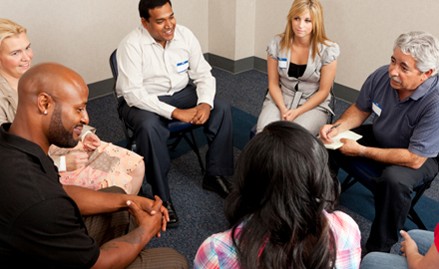By Sandi Henderson and Wendy Lee Sims Campbell
You made a decision to have a weight loss surgery and improve your health. Good for you! Now that you are back home, facing your food centered culture every day, how are you going to deal with facing every day confronted with food? Food is no longer a social event for you, it is not a celebration, and it’s not your central theme of family time. Food no longer defines you or every single significant event in your life.
This is quite a change for all of us who have had weight loss surgery. Your excellent bariatric surgeon operated only on your stomach, not your head. YOU need to find your path to keeping your head in the game. Your spouse, children, significant others, friends and family may support your efforts to reclaim your health, or some may not understand why you no longer join them in their food oriented celebrations. Then there are those who monitor every last bite you put in your mouth, raising an eyebrow at you or perhaps even asking, do you REALLY want to eat that? Whichever role these folks play, weight loss surgery friend or foe, they are not in the same place mentally and emotionally that your decision to have weight loss surgery has put you.
The ONE certain way to be able to BELONG to a group of folks who truly “get you”, who can share their struggles and successes, their frustrations and their celebrations and help you learn what it takes for YOU to be successful is to belong to a support group. The most successful people in the weight loss surgery community, those who have not only lost all of the weight that they wanted, but have kept it off for a number of years are those who are active in support groups.
Here are some statistics that support these conclusions as found in a Stanford University School of Medicine study of patients at 5 or more years post-op. (Highly successful patients were those who maintained at least an 80% excess weight loss. ) New Research Confirms Need For Post-Op Education:
• Highly Successful Patients were 3 times more likely to attend support groups regularly • Highly Successful Patients were 5 times less likely to eat mindlessly • Highly Successful Patients were 3 times more likely to exercise regularly • Highly Successful Patients took their vitamins and supplements regularly, weighed themselves regularly, limited their portion sizes, avoided drinking liquids with calories, ate protein first, avoided fast food and carbonated beverages, kept their portion sizes in check.
To summarize, those patients who maintained their excess weight loss for five years or more learned how to integrate what it took to become and stay successful into their daily living. They adjusted their lifestyles permanently.
Your weight loss surgery gives you the opportunity to quickly change your eating, however over time, unless these changes become ingrained habits, old habits and bad choices can creep right back in before you are even aware of them.
The one way to help insure YOUR long term success is to take advantage of all educational opportunities that are offered, beginning with following the post-operative instructions you have been given by your bariatric surgeon and his team of skilled professionals, and following up by attending the support groups and classes offered. Beginning right now, whether you have just had surgery or are just planning surgery you can find one to attend, whether in person, on line or by telephone.
www.wlssuccessmatters.com
WLS Success Matters on Facebook
Sandi Henderson and Wendy Campbell are successful weight loss surgery patients with over 14 years of experience between them. They are licensed bariatric educators and bariatric coaches and all of their material is based on The Success Habits of Weight Loss Surgery Patients as developed by Bariatric Support Centers International.
If you have any questions, please visit our website at https://www.mexicalibariatric.com or contact our office by calling 888-344-3916.

